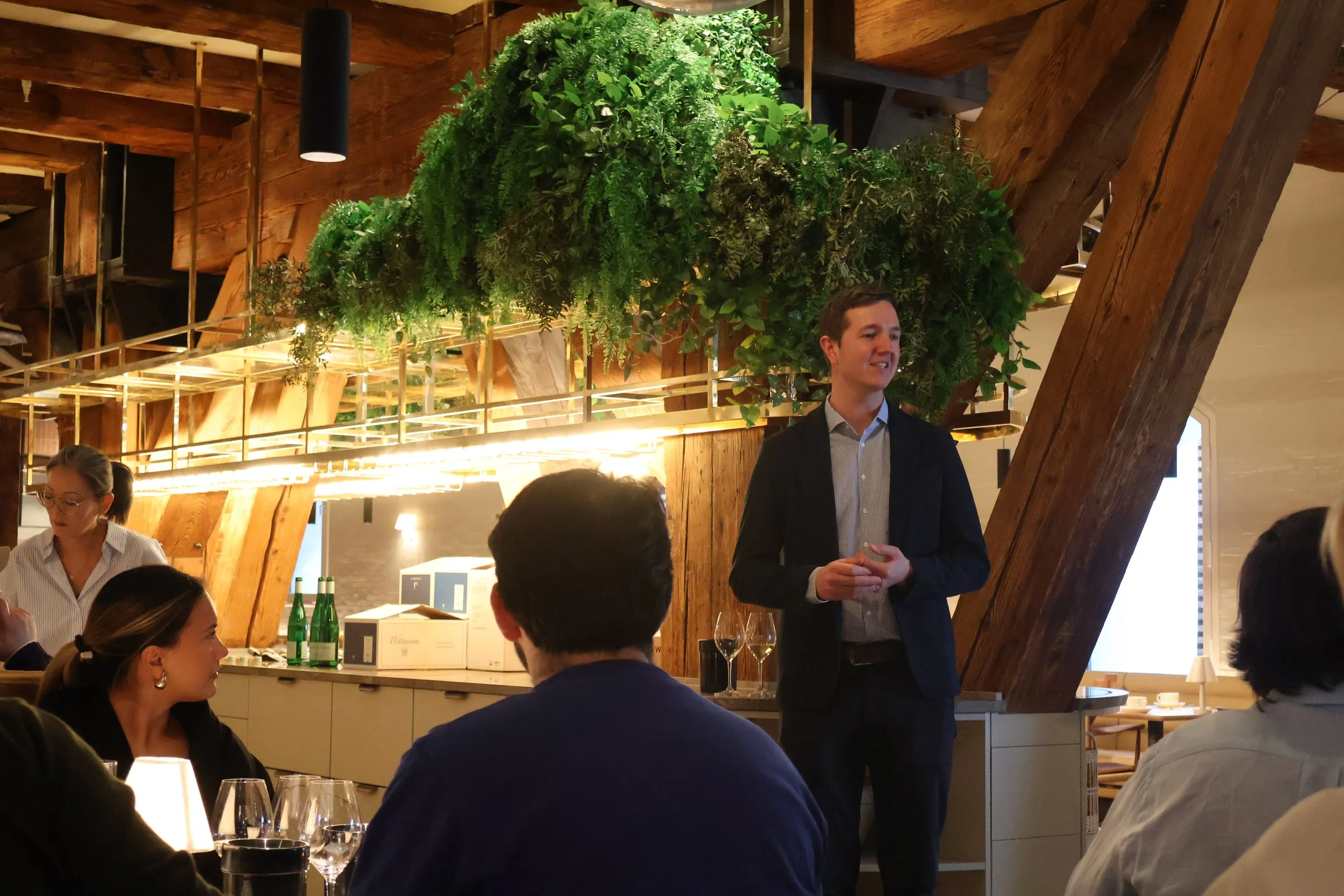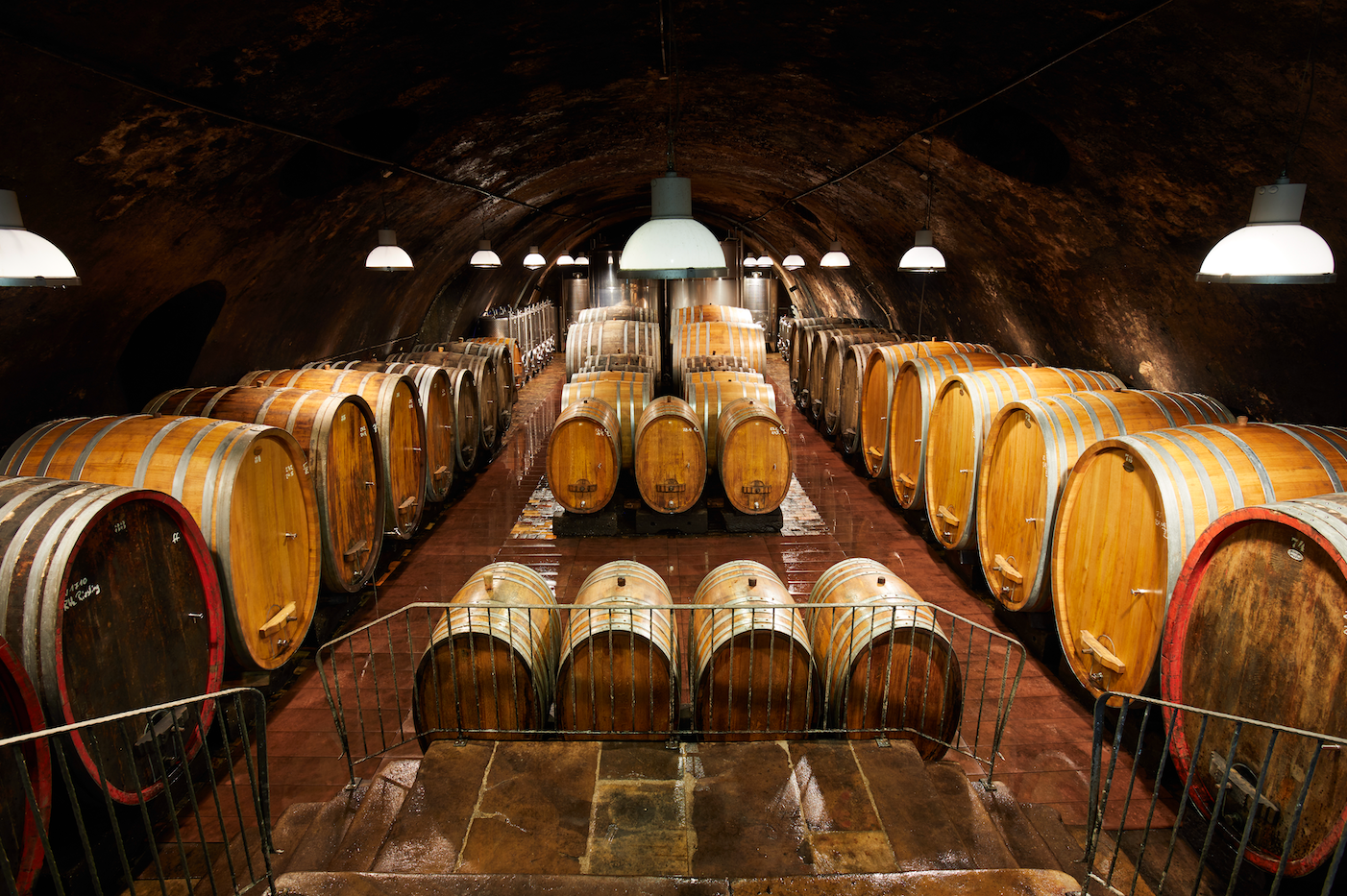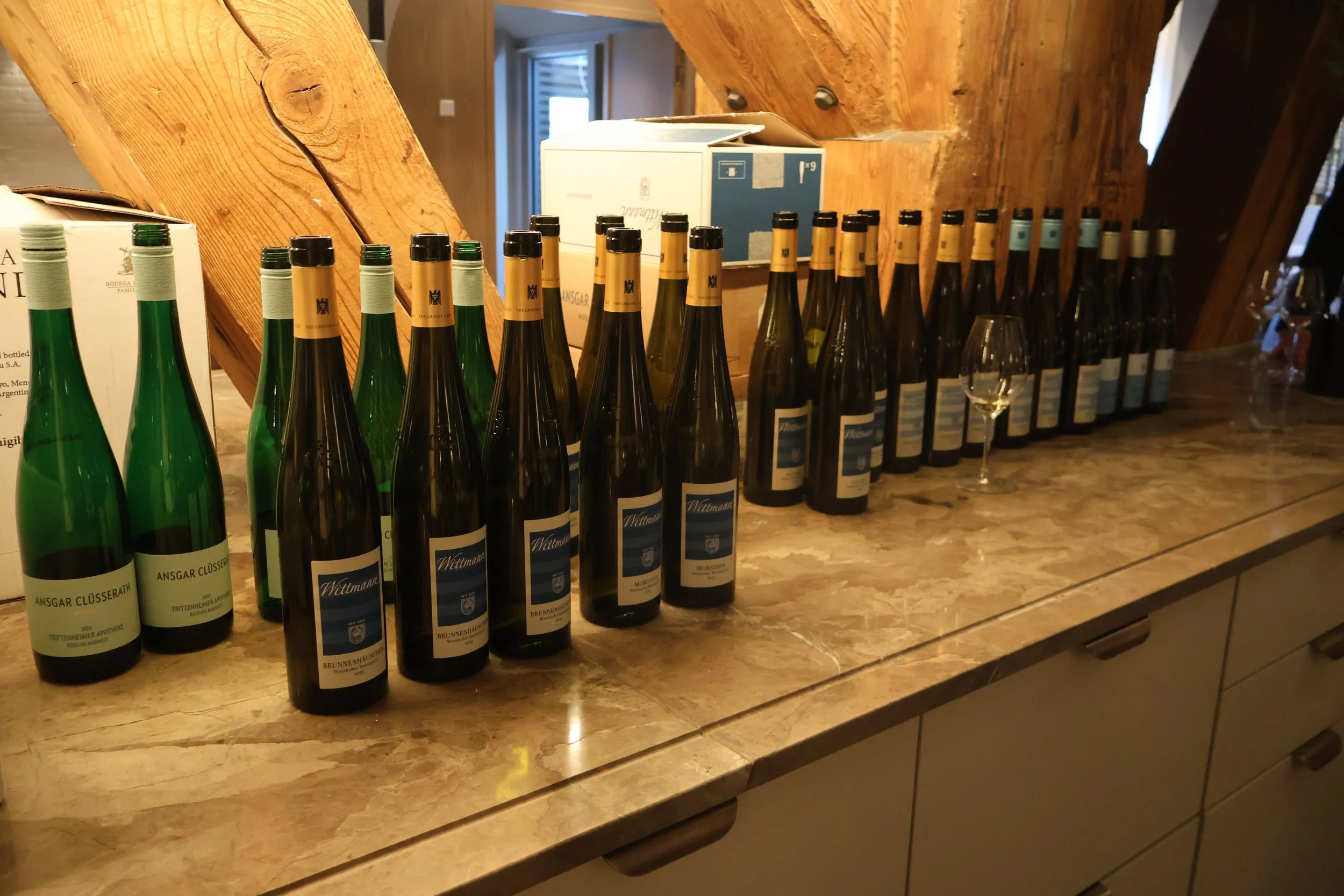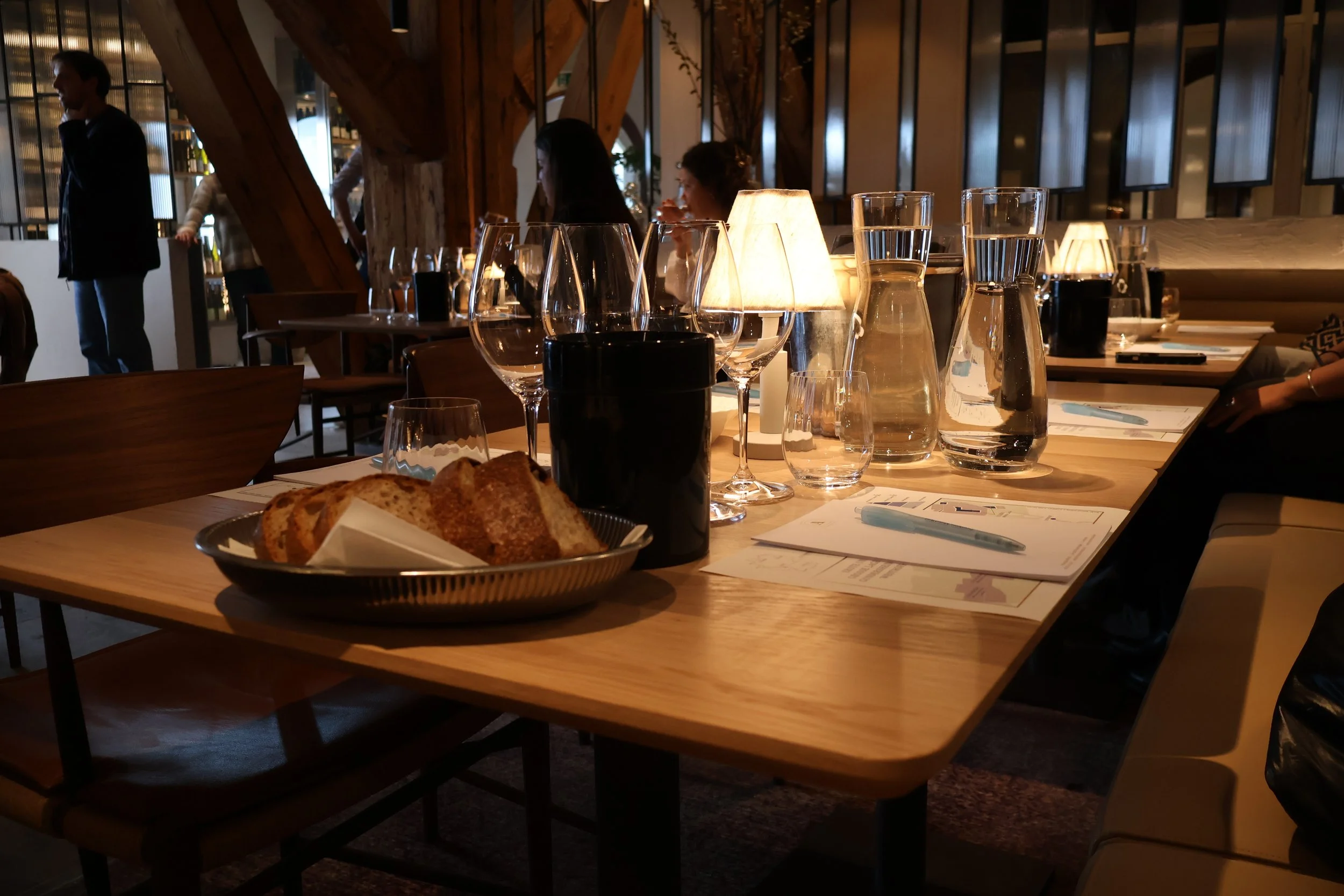Wittmann Wines: Rheinhessen today is incredibly dynamic
Photo: Leonhard Meese, Wittmann in Copenhagen. Photo: Ronja Bo Gustavsson
Weingut Wittmann, a biodynamic estate in Rheinhessen, Germany, blends centuries old tradition with modern innovation. In a conversation with Leonhard Meese, we explore the estate’s legacy, its sustainable approach, and the growing appeal of Wittmann wines in Denmark’s discerning wine market.
In Westhofen in Rheinhessen, Germany, Weingut Wittmann is a name that resonates with tradition, quality, and innovation. With a winemaking lineage that dates all the way back to 1663, the Wittmann family has been running the estate for over 15 generations. Today, it is Philipp Wittmann, who now leads the estate, producing terroir-driven wines that have earned acclaim both in Germany and around the globe.
The transformation of Wittmann from a traditional agricultural estate to one of Germany’s benchmark wine producers began in earnest in the late 1980s. Philipp’s father, Günter Wittmann, led the estate’s transition to organic viticulture long before sustainability became a buzzword. The winery achieved organic certification in 1990, and in 2004, they took the leap into biodynamic viticulture.
Today, the 35-hectare estate is focused primarily on Riesling, which makes up 75% of their plantings. The rest is dedicated to Pinot Blanc, Pinot Gris, Chardonnay, and Spätburgunder. Their most prized vineyards include Morstein, Kirchspiel, Aulerde, and Brunnenhäuschen, each bringing a fingerprint to the wines thanks to the region’s clay marl with limestone soils.
“In Denmark, people are very open-minded and curious. That makes it easy to tell our story.”
The 35-hectare estate is placed in Westhofen in Rheinhessen, Germany.
A Conversation with Leonhard Meese
When I met Leonhard Meese, his passion for the Wittmann philosophy was immediately apparent. “My name is Leonhard Meese. I started working with Weingut Wittmann in 2017,” he told me. “I did my internship here, and now I work as the second winemaker while also being responsible for export sales.”
Leonhard did humbly refer to Wittmann as a “small family estate,” but with exports to over 50 countries, the winery’s reach is definitely global. “We like the idea of being represented on great wine lists all over the world,” Leo added. “Today, we export to over 50 countries, and the goal is clear: be present in top restaurants, hotels, and wine bars.”
“Rheinhessen today is incredibly dynamic. In the 70s and 80s, it was known more for cheap, sweet wine. But then came a generation, like Philipp’s father, who focused on quality, organics, and terroir-expressive varieties like Riesling.”
Deep Roots
“The estate's roots stretch back to 1663,” Leo explained. “Philipp Wittmann, who leads the winery today, is the 15th generation. Back in the day, it wasn’t just about viticulture, agriculture in general played a big role. But over time, the focus has shifted completely to wine.”
One of the estate's most defining decisions came in the late 1980s. “Philipp’s father was among the pioneers, converting to organic in the late 1980s as part of the first wave of quality-focused estates,” Leo said. “Rheinhessen wasn’t always known for high-quality wines, but that generation started to shift things.”
“And together with his father, Philipp took it further by getting certified biodynamic in 2004,” Leo added. “That was a huge step and remains an essential part of our philosophy.”
Sponsored ad from Wine Group:H.J. Hansen Vin
The Cellar: Tradition Over Technology
“Our approach in the cellar is very traditional,” Leo told me. “The idea is always to reflect the vineyard’s character: the terroir. So we ferment spontaneously with native yeast, just as they used to do decades ago.”
These spontaneous fermentations take place in large wooden casks. “The traditional size is 2400 liters, we call it Doppelstück in our region,” Leonhard explained. “There’s also the Stückfass, which is 1200 liters.”
“Once the fermentation is finished, we let the wines rest on full lees,” he continued. “This part of the vinification and aging is crucial for us. The wines spend the winter resting in our cold cellar, gaining complexity and aging potential. Our wines should not only be enjoyed young, they should age beautifully for 5, 10, 15, even 20 years.”
The Dry Riesling
“All our wines are dry,” Leonhard continoued. “That’s what works best in our part of Rheinhessen, with its limestone and clay soils. It’s also the style we personally prefer.”
“There was a time when Philipp’s father made more sweet wines,” he acknowledged. “But from the early 2000s onward, we made a clear shift toward dry wines. Predicates like Kabinett or Auslese still exist, especially in regions like the Mosel or Nahe, but here in southern Rheinhessen, the dry wines tell our story.”
Rheinhessen: A Region in Transition
I asked Leo how the broader region has changed. “Rheinhessen today is incredibly dynamic,” he said. “In the 70s and 80s, it was known more for cheap, sweet wine. But then came a generation, like Philipp’s father, who focused on quality, organics, and terroir-expressive varieties like Riesling.”
“Now we have both well-established wineries and a new wave of smaller, quality-focused producers,” he added.
“Danes want to know the story behind the wine. They care about how it’s made and by whom. That matches really well with what we do.”
Photo: Wittmann
Climate Change and the Future of Riesling
What about the future? Leonhard sees potential, but also challenges. “We’re always curious and open to learning,” he told me. “But we really believe in the traditional way, spontaneous fermentation, old oak barrels, long cellar aging.”
He noted that climate change is forcing the estate to adapt. “In hot years, we delay cutting the top canopy of the vines to create more shade and preserve moisture,” he explained. “Every year brings different challenges, and we respond accordingly. But the core of how we make wine stays the same.”
Riesling, Leonhard believes, is perfectly suited to modern wine drinkers. “It offers a full experience at lower alcohol levels, often between 11.5 and 12.5% ABV,” he said. “It’s incredibly food-friendly and versatile.”
Photo: Wittmann
The Danish Connection
Scandinavia plays a special role in Wittmann’s export story. “We have long-term, strong partnerships with our importers, who really champion our story,” Leo told me. “Plus, our wine style pairs beautifully with Nordic cuisine. It’s a great match.”
“It’s not just about the top Grosse Lage wines,” he emphasized. “Every level has to deliver.”
Leonhard highlighted the Estate Riesling Trocken as a key entry point. “It reflects our mineral soils and gives a clear picture of our style,” he said. “Then you have the Westhofener Riesling, a Premier Cru-level wine that offers amazing quality at a great value. And of course, at the top, Morstein is probably the vineyard people most associate with us.”
Doppelstück at Wittmann. Photo: Wittmann
A Market That Understands
When asked if the perception of German wine has changed in Denmark from his point of view, Leonhard said, “Definitely. There’s a strong understanding of quality and a real interest in authenticity and sustainability. Danes want to know the story behind the wine. They care about how it’s made and by whom. That matches really well with what we do.”
On presenting in Denmark, Leonhard shared, “In Denmark, people are very open-minded and curious. That makes it easy to tell our story.”
He contrasted this with markets like France, where he mentioned, “There, we have to work harder. People might see the label and think, ‘We have Riesling in Alsace too.’ But once they taste it, they see what makes German Riesling unique.”
Conclusion
From the old Doppelstück barrels to biodynamic practices, from Morstein to Westhofen, from Rheinhessen to Denmark, the story of Weingut Wittmann goes.
As Leonhard Meese reminded me again and again throughout our conversation: it’s not about following trends, but staying true to the roots. And in Wittmann’s case, those roots run deep.
Thanks Wine Group for arranging the interview and the tasting.











